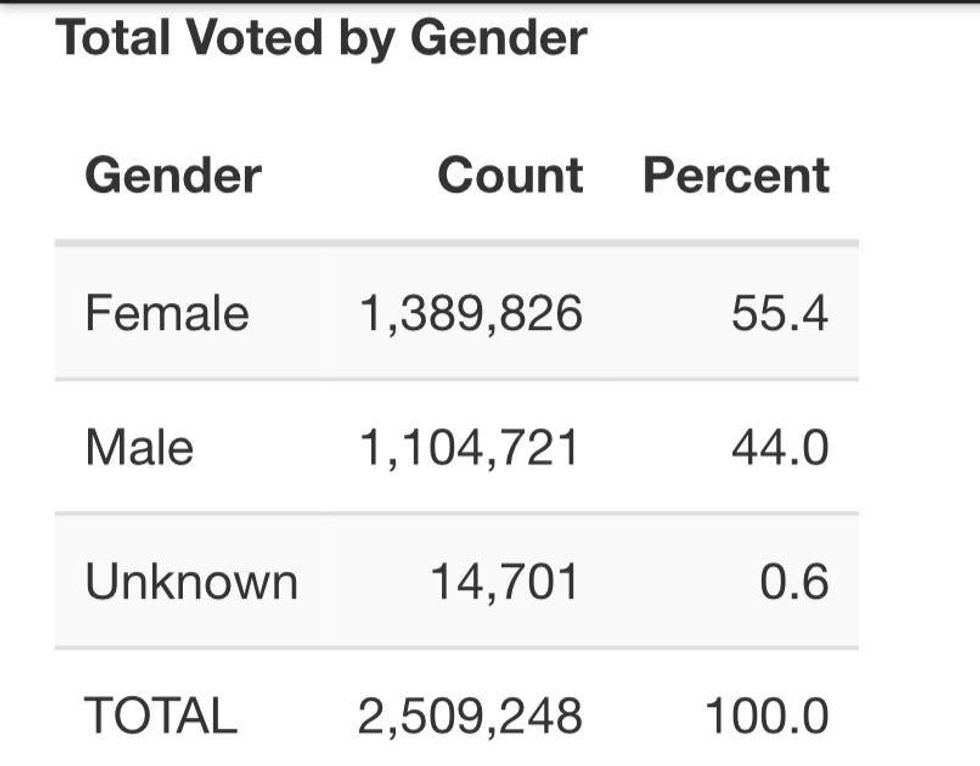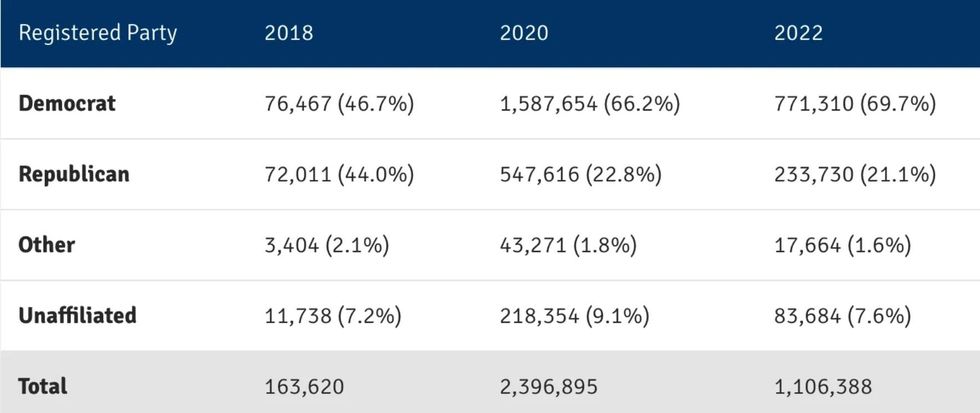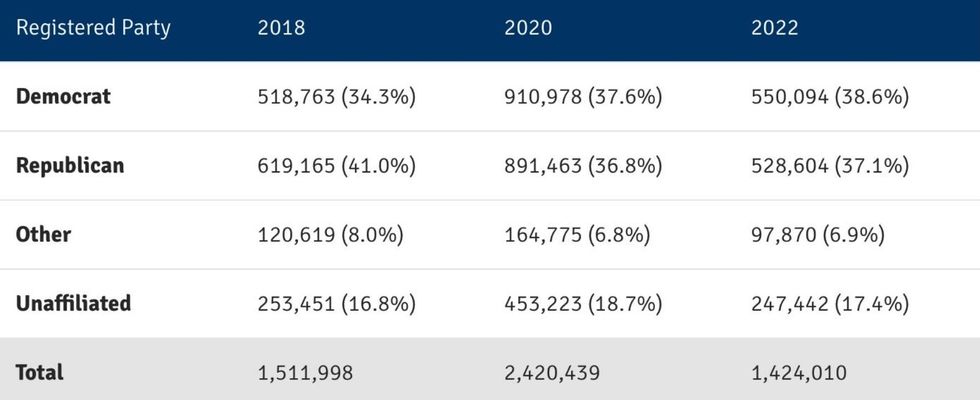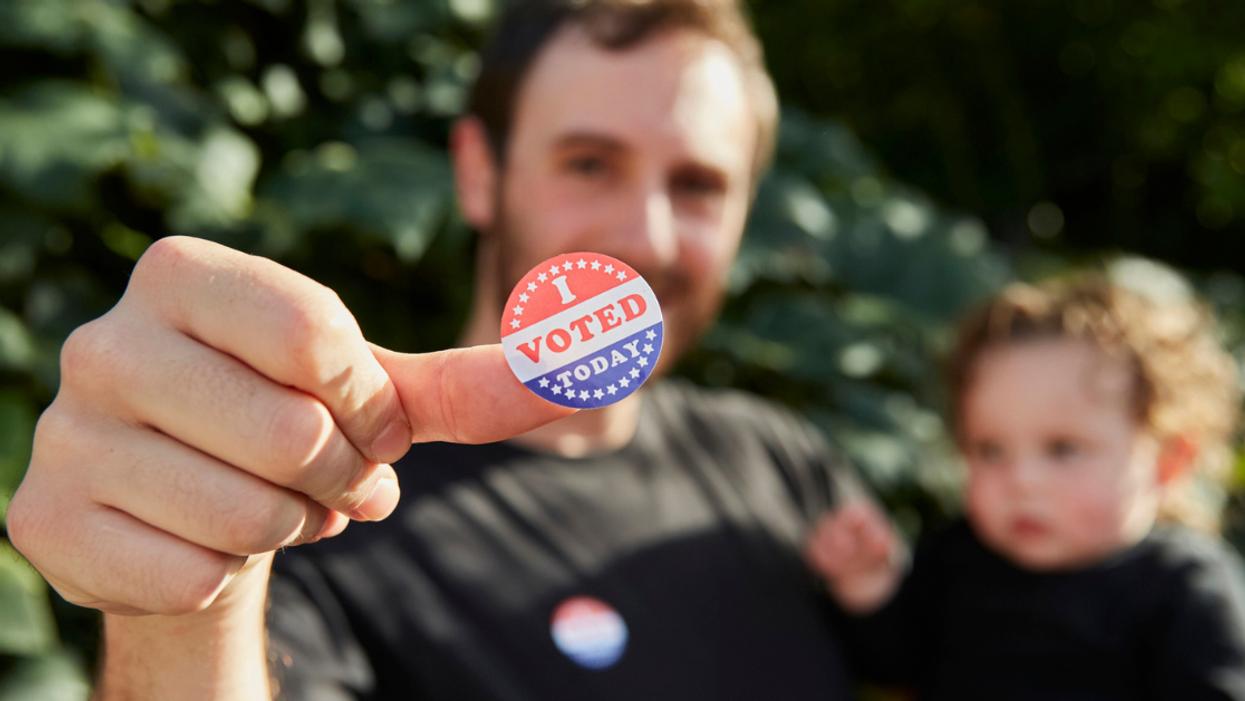Like everyone, I look at the generic Congressional polls. But I try to go behind the numbers as well, assessing who is conducting them and what their methodologies are.
Polls have been wildly divergent in recent years, and the trend continues today with some of them likely way off heading into Tuesday.
This is why I prefer to look at other data points, gathered by election experts across the various states. For me, actual early voting numbers are far more interesting and telling than polls.
I try to use the data to form as clear a picture as I can about possible or probable outcomes, whether or not the news is good. Beyond early voting numbers, I also like to look at special election results and demographic-specific voter data.
And with one day left before the election, here is what I currently see, in broad strokes.
Democrats Have Built a Sizable Sea Wall
For all the talk about a “Red Wave,” there has been little focus in the media on how well the Democrats already have prepared for it by racking up advantages in early voting. I call this relatively new phenomenon the “Blue Sea Wall” because it gets built before any Red Wave hits.
The whole point of it is to keep the GOP tide from sweeping out Democratic candidates. The Blue Sea Wall is not uniform. In blue bastions like New York, Oregon and California, it’s somewhat ironically lower and therefore more vulnerable.
But in notable swing states, like Georgia and Pennsylvania, it is already impressively high. According to the United States Election Project, which uses real-time numbers from the various Secretaries of State offices around the nation.
Georgia is shattering turnout records for a midterm, with 2.5 million votes already cast—or some 425,000 more votes than were cast early in 2018 by this same point. Women, who on average vote more Democratic than men, account for 55.4 percent of early voters there.
While that gender gap is not unusual, their sheer numbers in Georgia by this point are impressive, given that this is a midterm election.

In Pennsylvania, there’s a similar story.
Early voting is through the roof for a midterm, with Democrats holding a 69.7 to 21.1 advantage over Republicans in the early vote—a spread that is 5 percent higher than the early vote spread of the 2020 election according to TargetSmart, which is a Democratic-leaning outfit but which also publishes irrefutable state-level data on early voting by registered party.
Note that 2020 is a better basis of comparison on enthusiasm in Pennsylvania than 2018 due a shift in how the state allowed mail-in balloting after the law changed in 2019.

There are some widely accepted reasons for why Democrats are voting early while Republicans are waiting until Election Day, chief among them being that the GOP has scared its own base away from early voting by claiming it isn’t secure.
But again, putting aside the question of why Republicans aren’t voting early, it is clear that Democrats actually have done so. They have built the Blue Sea Wall in the pivotal states of Georgia and Pennsylvania.
The story now is, will the “Red Wave” overwhelm it?
The GOP’s Red Wave Hasn’t Shown Up Consistently in Data
We will likely see a surge of GOP voters on Election Day, but the question is how high the wave will rise. The polls tell us that there is strong enthusiasm for voting, but given the difficulty of getting anyone to even respond to pollsters these days.
The New York Times admits it is now less than a 0.4% completion rate, down 75 percent from 2018 response rates, they could be overestimating overall enthusiasm today. After all, it stands to reason that the kind of person who agrees to answer questions from a pollster through to the end of the call is generally more likely to be more enthusiastic about politics and voting than the average person.
Another place to look for high GOP voter enthusiasm is the series of special elections held in 2021, including for House seats. As I wrote about earlier, the Special House elections that were held post-Dobbs collectively showed a shift toward the Democrats of a few points, rather than a solid GOP direction.
They did not show anything close to a Red Wave back in August. In other words, something between August and now needs to have happened in the mindset of Republicans to really juice the vote.
But a primary driving factor—fear of higher gas prices—has actually subsided a bit since then. So what will drive the Red Wave? So far, that isn’t really clear.
Current polling also doesn’t really support a GOP landslide.
The media narrative in October was uniformly about such a blow-out, based in part around a series of polls that came out showing the GOP had regained the upper hand in the generic Congressional ballot. But that may have turned out to be a temporary phenomenon driven by pollsters with strong Republican partisan biases.
As Democratic strategist Simon Rosenberg argues, if you screen those partisan polls out and look at only the non-partisan polling, it tells a very different story of a country that is pretty much dead even.
The last time there were big red waves, for example in 2014 and 2010, the polling unequivocally showed the GOP with a huge advantage going in. That’s consistent with the average loss for the party in power of 28 House seats.
But today, the generic polls don’t show that same spread favoring the GOP, so a huge blowout isn’t as likely as in prior midterms. The country is nearly evenly split, just like our House and Senate, and so it really could go either way.
This is particularly the case in the Senate where there aren’t structural advantages like extreme gerrymandering boosting the GOP’s prospects.
Finally, the relentless attacks by the GOP on the security of early voting has depressed turnout and has Republicans in some states scrambling to change their messaging and get their voters to turn out early.
In Arizona, the overall early vote numbers are lower than in 2018, but that is entirely because of a drop in GOP early participation over around 90,000 early votes—all because the GOP has messaged against it.
Democratic numbers on the other hand are up from 2018 by some 32,000 votes.

Okay, So Where Does All This Leave Us?
When you’re playing defense, as we are now, you prepare as best you can and hope that they can’t breach your defenses and flood through. I’ve seen enough in the early voting numbers to say that the Democrats have done a very good job building the Blue Sea Wall up high in places that count like Pennsylvania and Georgia.
No matter what happens on Tuesday, we should be proud of how Democrats already have shown up and made themselves heard this midterm. If Democrats hadn’t delivered these early vote numbers, the game would be over already.
That doesn’t mean the wall holds in all places. Statistically speaking, it simply might be too much to expect it to hold everywhere. There could be a breach, most likely in Nevada, or maybe even a bad surprise in Arizona or New Hampshire.
Lose one of these states, and we would need wins in both Pennsylvania and Georgia to keep the Senate.
I do note with some cautious hope that the chief guru and prognosticator of elections at The Nevada Independent, Jon Ralston, is out with his uncannily accurate predictions, and he believes that Sen. Catherine Cortez Masto will win the Senate race there, assuming the storied Reid Machine turns out Democratic base voters in Clark and Washoe Counties on Tuesday.
Big turnout by young Democrats, who so far have held their fire on early voting, will also be key to this victory. There are indications that the youth vote is indeed coming and that they will match or beat what happened in the last two elections where they set records. If that actually happens, we’re in position to hold the Senate by a thread.
The House is a different beast.
It is very hard to fight for narrow victories in so many swing districts, most of which are held by the Democrats. If these were all actual coin tosses, we would lose the House by sheer statistical probability.
My own prediction is a loss of our House majority, in large part because of where the vulnerable House districts are located—namely in “safe” blue states where enthusiasm to vote around the issue of abortion is markedly more tepid. But giving the GOP a platform to demonstrate their extremism and obstructionism, along with their inability to come up with actual solutions, may set us up better for the critical 2024 presidential election.
While it may be hard to keep perspective when democracy itself is on the line, we can’t realistically expect to hold the House forever. If we’re going to lose it, this is probably a far better time to do so than in 2024.
More on what to expect and importantly how to prepare for Election Day results (and non-results) in my piece tomorrow.







 vasosecret/TikTok
vasosecret/TikTok
 dontlookatmedoll156/TikTok
dontlookatmedoll156/TikTok alyssa.b345/TikTok
alyssa.b345/TikTok EllieBelly/TikTok
EllieBelly/TikTok Shelby Daniel/TikTok
Shelby Daniel/TikTok J/TikTok
J/TikTok indigo1009/TikTok
indigo1009/TikTok Kam/TikTok
Kam/TikTok





 @starduster14021/X
@starduster14021/X r/TheMajorityReport/Reddit
r/TheMajorityReport/Reddit r/TheMajorityReport/Reddit
r/TheMajorityReport/Reddit r/TheMajorityReport/Reddit
r/TheMajorityReport/Reddit r/TheMajorityReport/Reddit
r/TheMajorityReport/Reddit r/TheMajorityReport/Reddit
r/TheMajorityReport/Reddit r/TheMajorityReport/Reddit
r/TheMajorityReport/Reddit @sciencexspirit/Bluesky
@sciencexspirit/Bluesky


 90s popcorn GIF
90s popcorn GIF  signing season 3 GIF
signing season 3 GIF  home alone pepsi GIF
home alone pepsi GIF  Machine Production GIF by Finder Relais Nederland
Machine Production GIF by Finder Relais Nederland  No No No GIF
No No No GIF